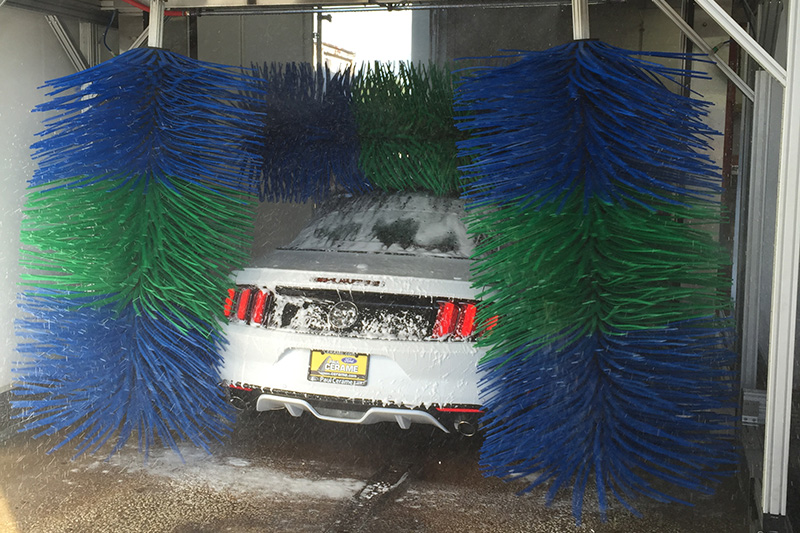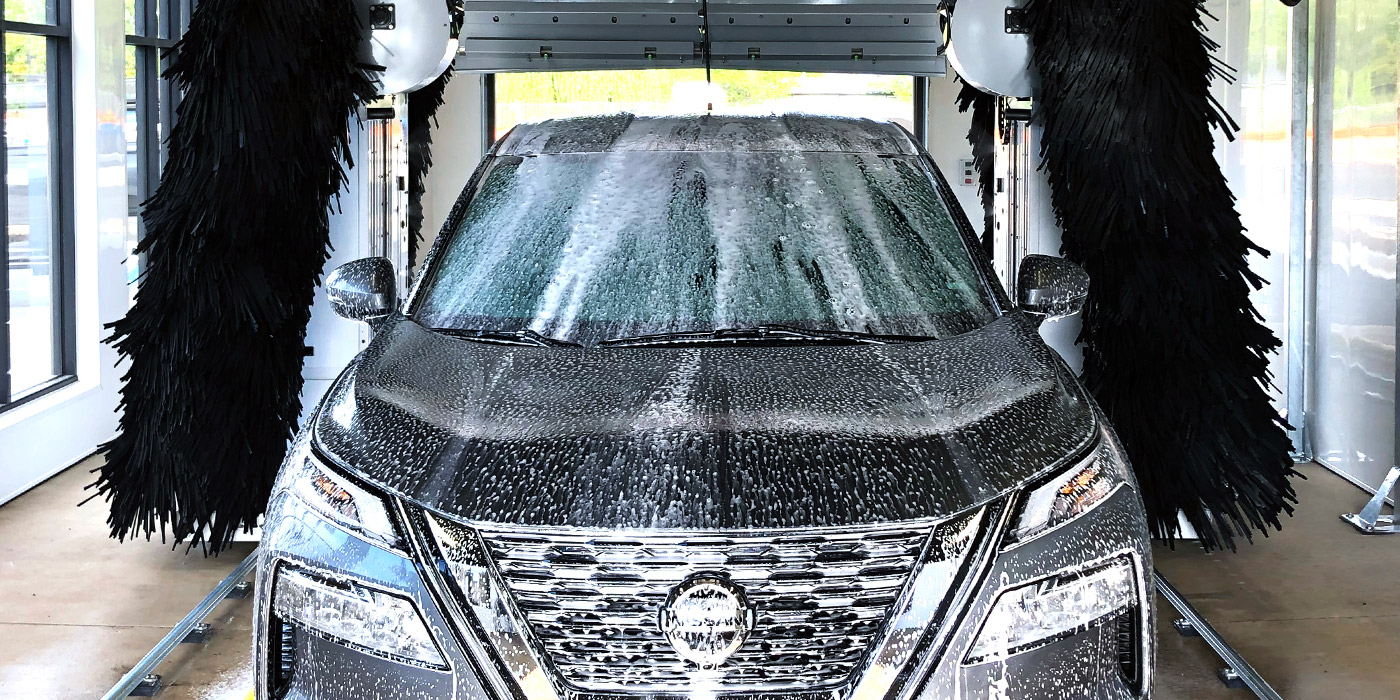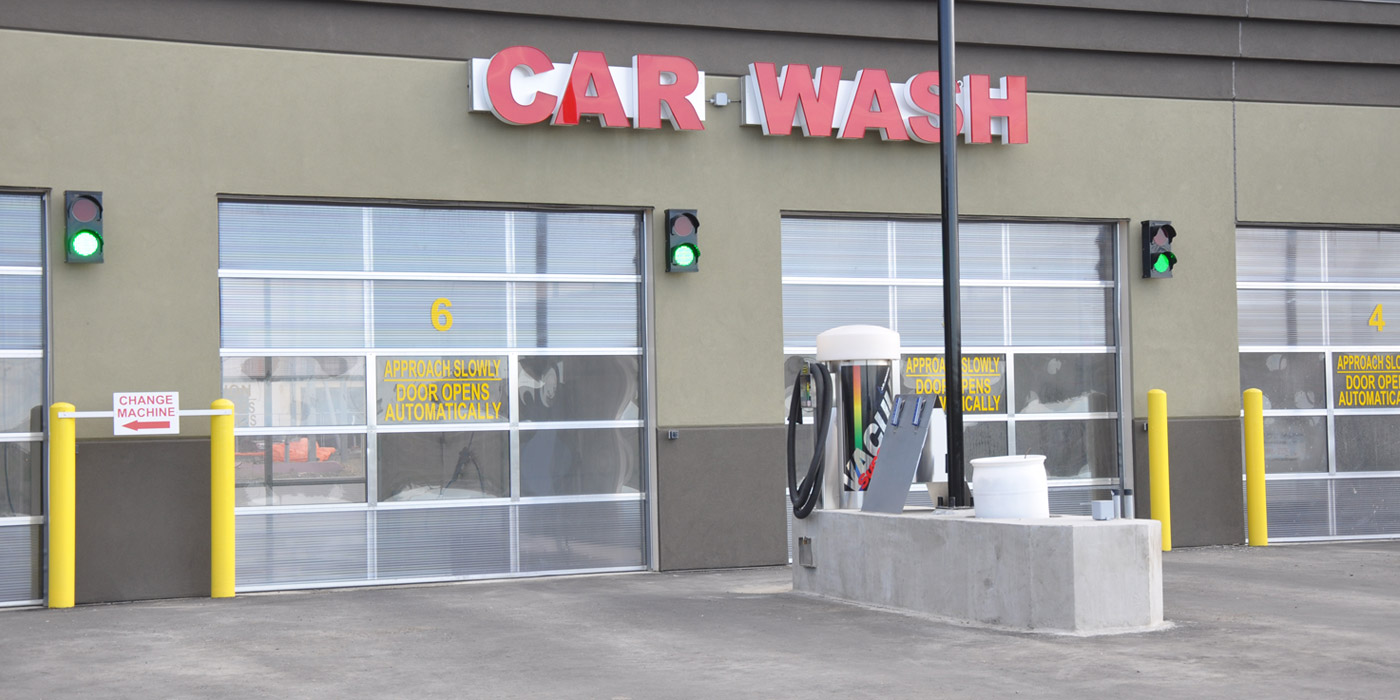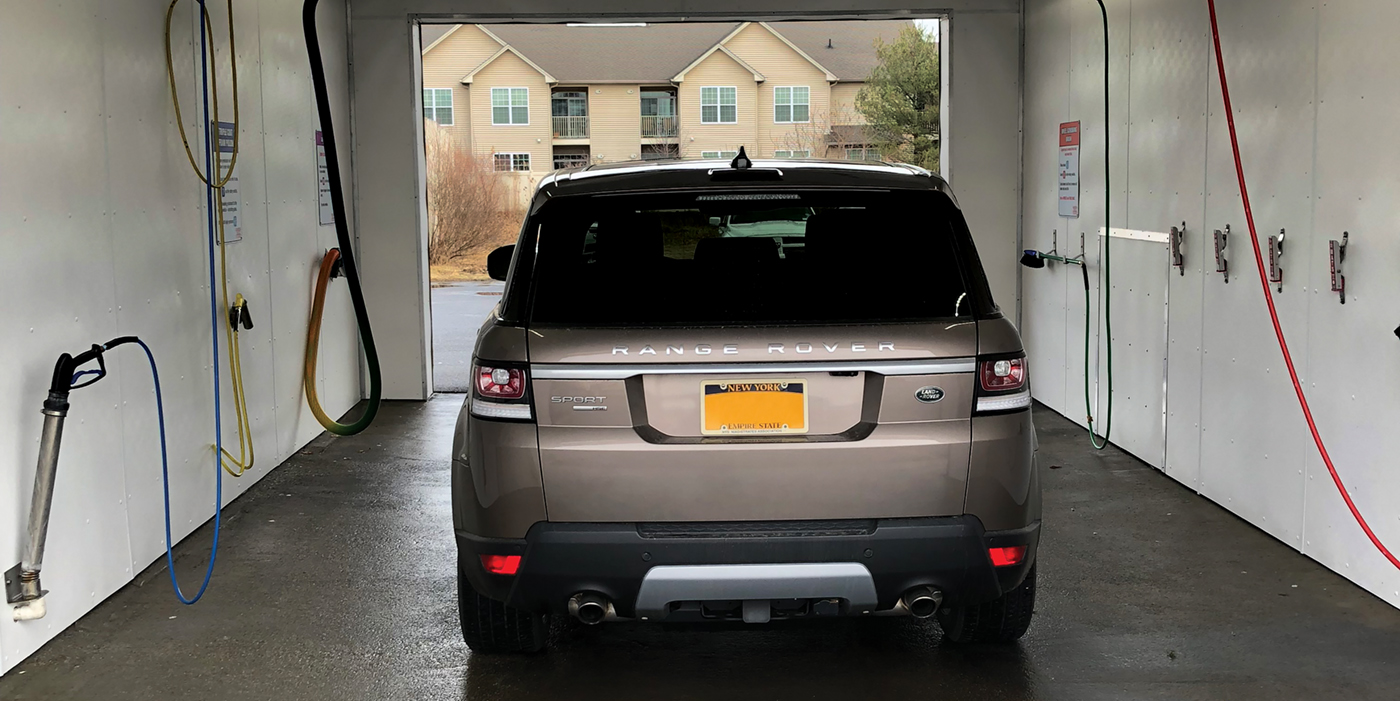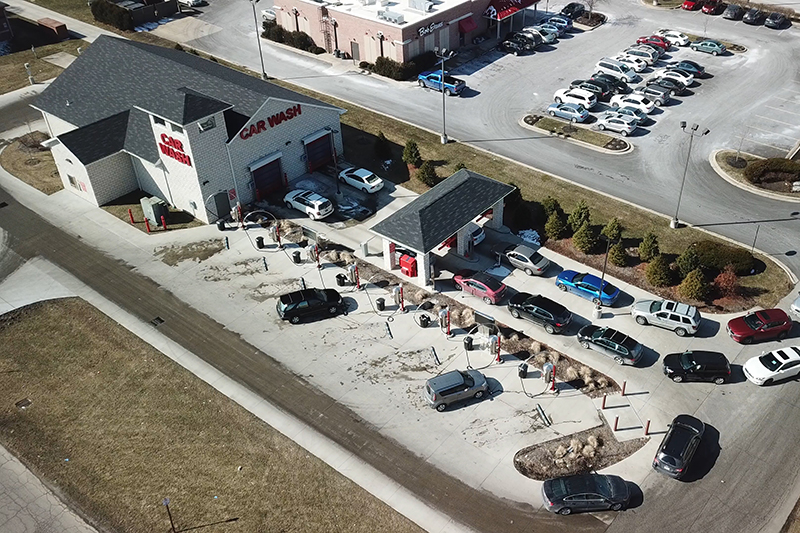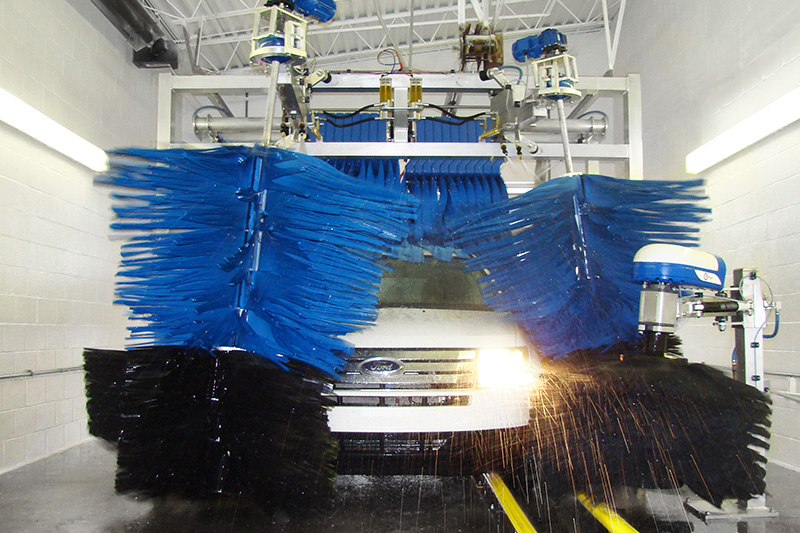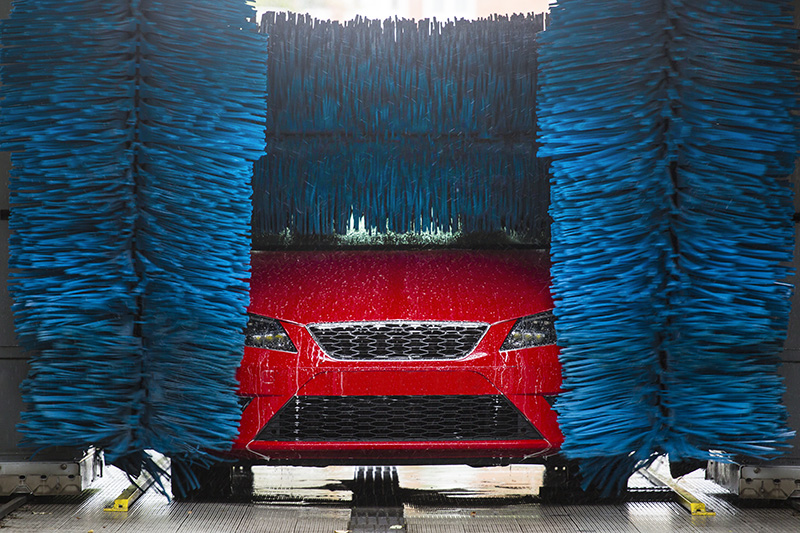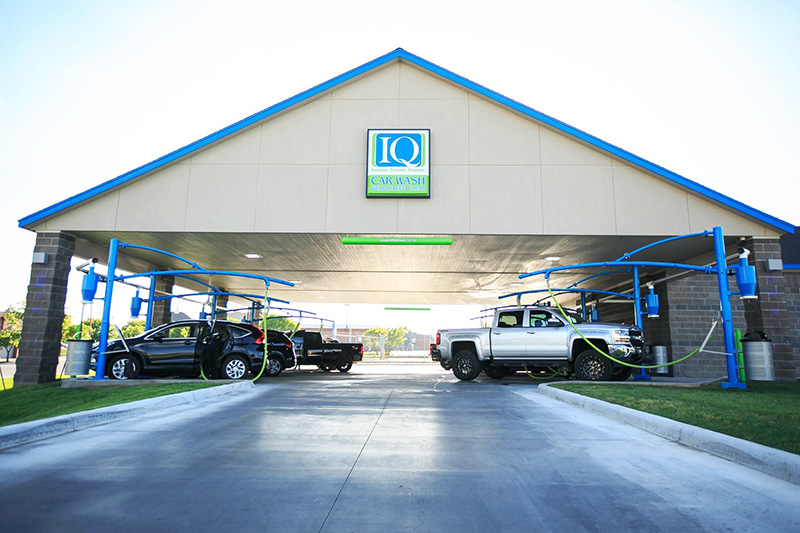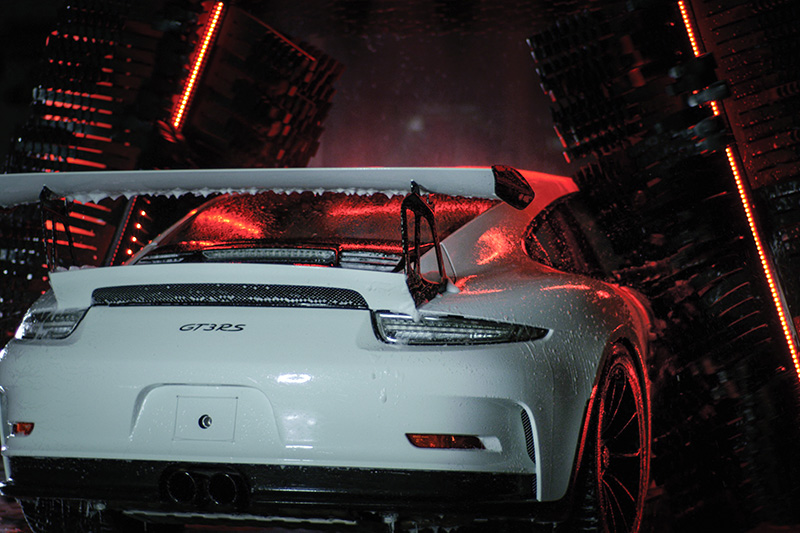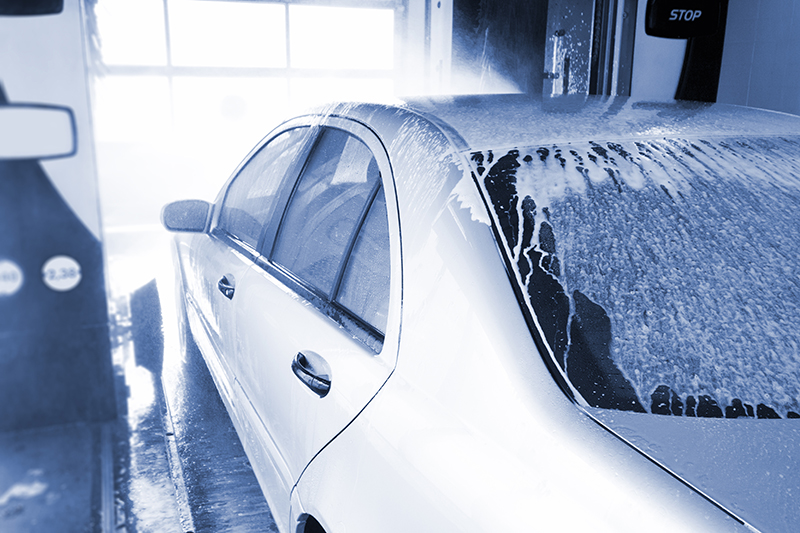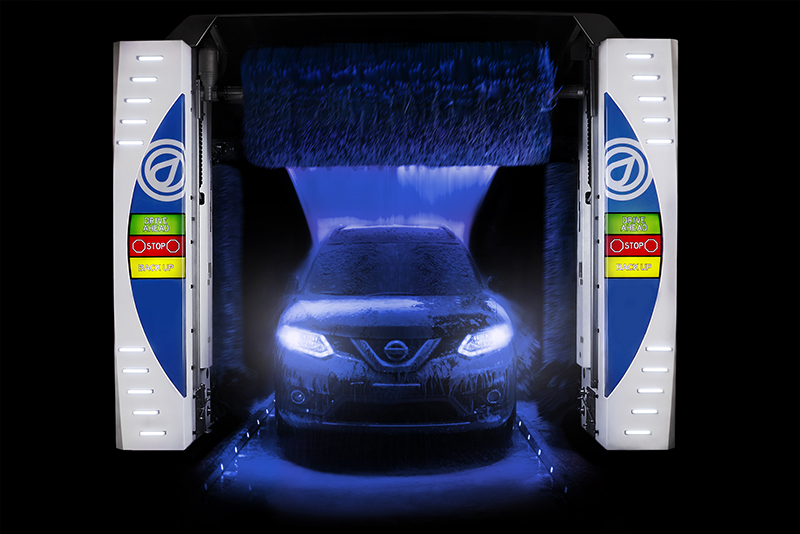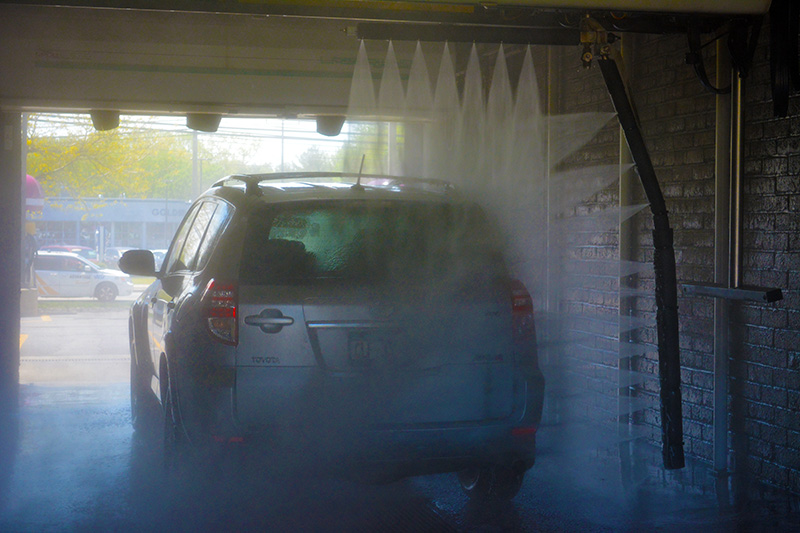Carwash operators who stake a claim in today’s crowded marketplace understand that almost every high-traffic site will be surrounded by stiff competition. As c-store in-bays shut down, driveway washing fell out of favor and charity washes became less common, the construction of standalone tunnels and bays surged. By utilizing technology to create speedy and effective wash facilities, modern washes succeeded in becoming the go-to locations for a wide array of car care services.
That said, another area of unexpected competition has experienced a recent period of expansion. Surprisingly, auto dealerships have driven growth in the carwash equipment industry as the addition of automatic wash facilities to sales and service lots has become commonplace. As these unique, from-scratch wash operations developed, their owners often had to improvise and overcome fresh washing challenges.
As different types of competition emerge, versatile carwash owners always stand ready to adapt. In this instance, operators can learn from automated wash usage in the growing auto dealership segment of the car care industry. By tracking the trends that have developed via these busy and popular auto dealership operations, established carwash owners can possibly generate new customer service ideas as well as updated wash offerings.
Adding carwashes
Initially, auto dealerships added automated carwashes to their sites as a way to drive up their Customer Satisfaction Index (CSI) scores, according to Bill Hoaglin with D&S Car Wash Equipment Co. Early adopter businesses were also looking for ways to set their locations apart from other dealerships that did not offer carwash services.
“CSI scores from surveys dictate how dealerships receive discounts, benefits from the manufacturer and pay plans for service managers and service writers,” Hoaglin reveals.
Ian Burton, North American director of sales for Istobal Vehicle Wash & Care In-Bay Automatics, notes that automated washes have been utilized by some auto dealerships for a while. He agrees that the technology’s recent surge in popularity on auto lots is due to the important addition of the dealership CSI scores. This rating level is determined by the customer after he or she leaves the dealership having bought a vehicle or visited the dealership for vehicle services.
“It is a proven fact that there is a large increase in a customer CSI score when they get their car back clean,” says Harry Schleeter, president of Broadway Car Wash Equipment. “Today’s dealership business is all about improving or having a great customer experience. Providing a quality, quick and hassle-free carwash goes a long way towards improving the experience or creating customer retention.”
Popular formats
When choosing a wash format to install, Burton states that a dealership will typically select equipment based on how many vehicles the location will wash during each day. If there are multiple dealerships using one wash facility, the business will lean towards an exterior tunnel wash. That said, most dealerships choose an in-bay automatic wash based on the space and cost required. Self service carwashes are only selected when the dealership provides detailing as a service.
In-bay washes seem to be the most popular choice for auto dealerships, as this is what dealers are most familiar with, according to Schleeter. The configuration normally fits the volume need dealerships require. This format also best lends itself to most of the processes and personal assignments dealerships like to follow.
Still, of all the different types of carwash operators today, dealerships are the least familiar users of carwash equipment, Schleeter continues. As equipment has operated more consistently, provided better vehicle washing and become easier to use, dealerships have become much more comfortable using the equipment. These developments have made the dealership carwashing experience easy and given dealers added peace of mind.
Labor costs are another carwash consideration. “Dealers have seen the benefit of an automatic wash over the conventional ‘hose and porter’ routine,” Hoaglin says. In-bay automatic washes are most popular due to requiring the least amount of operational labor. An important driving force behind dealers adding automatic washes are these ever-important labor savings.
Burton points out that automating the wash process via the technology provided by the carwash industry has proven imminently important.
Eliminating the cost associated with having an employee hand wash vehicles on-site has increased the growth of wash facilities at dealerships. Even taking all financial factors into account, it is actually less expensive per vehicle to wash in an automated wash than pay the expenses associated with having an employee wash vehicles by hand.
Needed features
Compared to carwash sites with all the bells and whistles, auto dealerships typically only require the basic wash features needed to clean a vehicle, Burton states. This list of offerings generally includes soap, a rinse, a wax or drying agent, a reverse osmosis (RO) rinse and a dryer. Auto dealerships do not require all the popular marketing chemicals — tri-foam, lava curtains, high-end scented waxes, etc. — associated with the retail market because the general public does not have access to these washes.
Schleeter agrees that most dealerships are looking for very basic points of operation. Most will have a variety of operators using the wash — from customers to porters, sales staff and others — so they want a quality wash with equipment that is simple to use and understand. Second, dealers do not typically raise revenue with their carwash operations, so many are careful to manage cost of ownership. With these factors in mind, equipment providers often work to make sure the best ownership experience is provided.
Hoaglin’s list of important dealership wash features is short as well. It includes:
- Wash quality
- Wash speed
- No damage.
Damage prevention is definitely an important consideration for auto dealerships that offer carwashes. Hoaglin explains that dealerships were required to run damage claims from inventory and customer vehicles on a line item of their profit and loss statements. Generally, the reportage of these numbers for dealerships has dropped with the addition of automatic washes that operate safely.
New developments in the wash equipment field have helped lessen the threat of vehicle damage. Certain types of equipment can create a custom wash for every vehicle, according to Hoaglin. This technology creates a detailed wash route around a vehicle’s exterior based upon a captured scan of the vehicle. The equipment does not rely on air pressure against the brush material to dictate the wash quality. Instead, an exact scan of the vehicle is taken, and a contour is created. The brushes are then given an address to move to based on the scan information.
Common offerings
How do carwashes offer these washes to their new and existing customers? Most dealerships offer a free carwash to each customer with every service visit. Hoaglin states that some dealerships ask the customer at the time of drop-off if it is permissible to wash his or her vehicle. If so, before the vehicle is returned to the customer at the service drive location, it is taken through the wash.
Other dealerships choose to provide a carwash code on every repair order that will allow the customers to drive through the wash themselves. This option creates another labor savings avenue for the dealers. An additional advantage this setup can allow is the opportunity to upsell the customer at the pay station, Hoaglin notes. These upsell services can result in passive income for a service department.
“For example, the free carwash code is for a basic wash,” Hoaglin continues. “When the customer punches in the code, the pay station prompts the customer with, ‘Upgrade to a Supreme Wash for only $4 today.’ The $4 collected pays for the wash but also a little ‘customer pay’ money for the dealer. If 30 customers opt in for the better wash 26 days a month, that’s $3,120 the dealership collects passively at the carwash.”
No-limit free washes are another option that some dealerships offer. Here, some dealerships provide free carwashes for life as a benefit to buying at the dealership, and no limits are instituted. In fact, one dealership Hoaglin works with in Missouri has a separate carwash dedicated to customers who have purchased vehicles there.
These free carwashes have no attendants and no porters. Customers simply drive up, select a wash, drive in, receive the wash and drive out. “This dealer uses the area where the carwash line forms to place older age units in inventory in an attempt to move them,” Hoaglin says. “Sales items are placed near this line as well.”
Burton has seen dealership carwashes offered in three ways:
- As a part of the service performed once the vehicle is returned to the customer
- Once a customer has purchased a vehicle
- To improve the general image of the dealership lot, as clean vehicles have a better image than dirty ones do.
Burton states that there are some dealerships that offer the carwash as a service to their customers at any time during store hours. The washes are either free as part of the purchase of the vehicle, or the dealership will charge customers a discounted fee per wash. Often, these large dealerships will call on the same wash club technology retail washes utilize. These dealerships can use tokens, RFID systems, wash codes and the ability to purchase wash memberships on dealership websites.
Wash competition
Though often these dealership washes are basic, some retail sites near auto dealerships can suffer. The dealership may be giving a free carwash to someone that a nearby retail site had previously captured as a customer, according to Hoaglin. The dealerships that are embracing the possibility of making money from their carwashes are especially likely to compete with retail locations.
One advantage a dealership can have over a retail express wash is the practice of having employees drive the vehicles through the tunnel. Burton states that this step virtually eliminates the damage that can happen when the public drives on a wash site. Unfortunately, the process cannot be replicated at a typical retail wash.
Also, retail carwash sites may have enjoyed the discounted business provided by nearby or local dealerships, Burton notes. These washes will have virtually lost that revenue when the dealership installs its own wash.
Monthly memberships are another area where competition with retail washes may occur. Some dealers are offering monthly memberships to their customers in order to get them back on the lot, Hoaglin concludes. Vehicles break down less frequently than ever before, and this makes for longer periods of time between typical dealership visits. Having a wash on-site can increase this visit frequency.
Phil Ashland is a freelance contributor.

